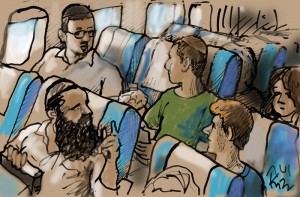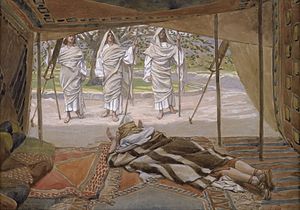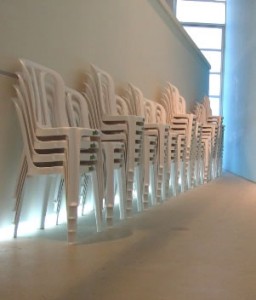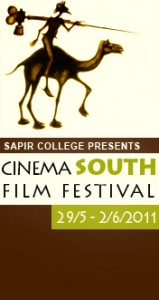I think it was my senior year in high school in which my friend Dave first discovered the truth. And since I was his best friend, he was determined to impart the truth to me as well.
It was a cover story in Time magazine, I’m pretty sure, that set Dave off. It was a big spread about the Shroud of Turin, a cloth that many Christians believe bears an image of the crucified Jesus. New research, the magazine reported, proved that the cloth and the image indeed dated from the first century AD.
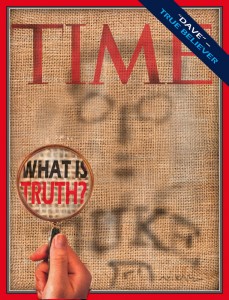
illustration by Avi Katz
“Wow,” said Dave, putting down the magazine and digging into the chocolate ice cream I’d dished out to him in my family’s kitchen. “We all gotta become Christians now!”
“Ha,” I said. Dave had, after all, been in my Hebrew school car pool. His Mom made a mean kugel and his older sister was going out with the son of the military attaché at the Israeli embassy.
“I’m serious,” said Dave. “It says here that it’s Jesus on the shroud. That means you have to believe in him.”
